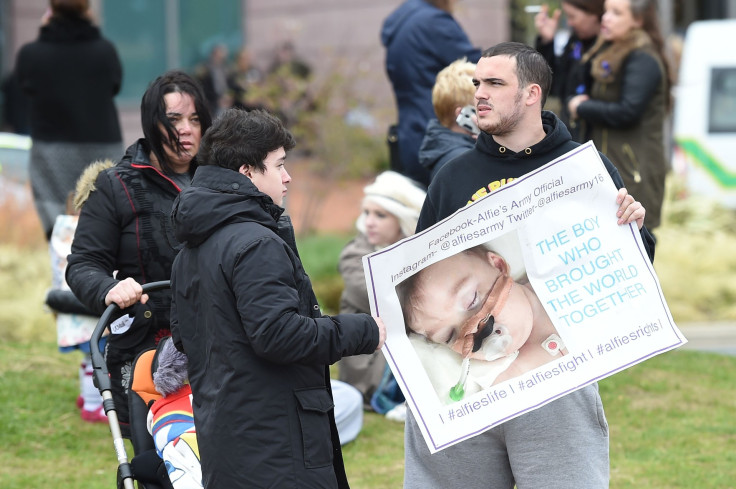What Disease Does Alfie Evans Have? Mitochondrial DNA Depletion Syndrome Symptoms

On Wednesday, 23-month-old Alfie Evans’ parents vowed to take their case to the Court of Appeal in a fresh attempt to take him to Italy, to seek treatment for his mysterious disease.
Although Evans’ degenerative neurological condition was not definitively diagnosed by the doctors, some experts believe the toddler has Mitochondrial DNA depletion syndrome (MDS) — the same disease that affected Charlie Gard — an infant whose parents were embroiled in a similar legal battle last year. After the same outcome as Evans’ case, Gard was removed from life support and he died a week before turning a year old.
If it is proved that Evans indeed has a mitochondrial disease, he would be the 17th person to be diagnosed with the rare inherited condition that causes muscle weakness and loss of motor skills.
According to the U.S. National Library of Medicine, signs and symptoms of MDS typically begin in early childhood. While a baby with MDS maybe born healthy, muscle weakness sets in within a few months of birth and as it gradually progresses, the patient loses motor skills such as standing, walking, eating, and talking.
#AlfieEvans has been made prisoner in his own country. His only crime is that he is sick. Shame on England. The whole world is watching. It’s not to late to let Alfie go, to get the care elsewhere that his parents are fighting for. @AlderHey, let him go! https://t.co/zzfP0FXzAx
— Lila Rose (@LilaGraceRose) April 25, 2018
In some cases, infants with MDS might struggle to control eye movement, leading to droopy eyelids (progressive external ophthalmoplegia). Some other symptoms may include enlarged liver (hepatomegaly), frequent seizures, hearing loss caused by nerve damage (sensorineural hearing loss).
As the disease enters advanced stages, breathing on one’s own becomes difficult and the patient has to frequently rely on mechanical ventilation. Respiratory failure is the most common cause of death in people with MDS, often occurring in childhood. Despite the increased physical deterioration, mental faculties like intelligence are not hampered.
There is no effective treatment or cure for MDS, although some experimental procedures are in existence. Patients affected with MDS rarely survive into their adolescent days.
Evans, born on May 9, 2016, was placed on life support at Alder Hey Children's Hospital in Liverpool in December 2016, after the infant started experiencing "jerking, seizure-like movements" which was later diagnosed to be due to a chest infection, Metro reported.
Although Evans’ parents were told that their son might not survive the infection, the infant was able to beat it and even began breathing on his own. However, soon the infant started getting chronic seizures and he had to be put back on life support.
Evans entered what the doctors described as a “semi-vegetative” state after living in a coma for over a year. In December 2017, the doctors of the hospital believed there was no hope for improvement in Evans’ health and filed a case with the high court to remove parental rights and withdraw ventilation.
Alder Hey Hospital argued that Evans had suffered “catastrophic degradation of his brain tissue” that had wiped out most of the white matter of his brain. Although the parents counter-argued that Alfie was responding to touch, doctors explained that it was an “auto-pilot response” since his brain cortex was still "live" and that his body was prone to spasms.
After the high court and the Supreme Court of the United Kingdom ruled against the parents’ wish to fly the infant to the Bambino Gesu Hospital in Rome, which has links to the Vatican, Three Courts of Appeal and the European Court of Human Rights also agreed there was no hope left for Evans, the Mirror reported.
Alfie was taken off life support on Monday but he continued to breathe on his own and could drink water, his father told supporters.
© Copyright IBTimes 2025. All rights reserved.






















